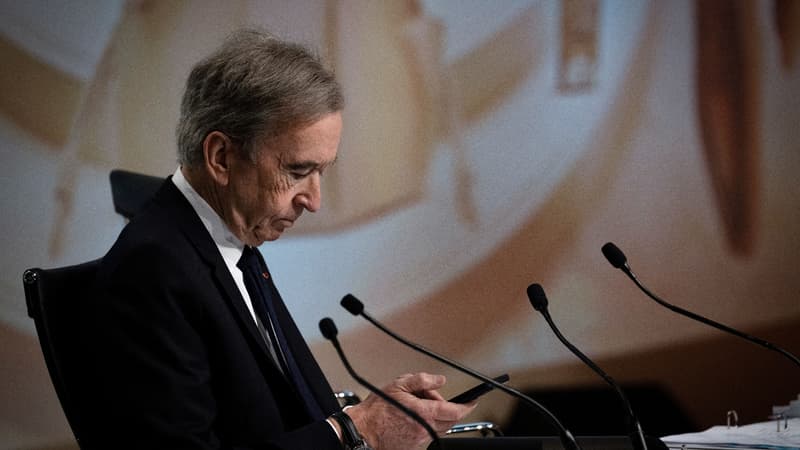The year 2023 does not seem like it will be a great year for Bernard Arnault. Becoming the first fortune on the planet in 2022 ahead of Elon Musk (something unheard of for a Frenchman), the French billionaire has seen his assets fade in recent months.
After hitting a high in early July of $212 billion according to the Bloomberg Billionaires Index, the fortune of LVMH’s founding boss has continued to plummet since then. In three months, almost $60 billion in valuation has evaporated. Bernard Arnault, who last January was richer than billionaires Bill Gates and Warren Buffett combined, is now in the red when it comes to his professional wealth. This week, Jeff Bezos, the Amazon founder who distanced himself from the company, even briefly passed by him again.
In the top 10 of the largest fortunes on the planet, the Frenchman is even the only one who will suffer a contraction of his wealth in 2023. While Elon Musk “has earned” almost 89 billion dollars so far, Jeff Bezos 45 billion, Mark Zuckerberg 69 billion and about forty billion each, Google founders Larry Page and Sergey Brin, the king of luxury “lost” almost 8 billion.
While the tech billionaires, after two dismal years, are making the most of AI’s effect on their stock prices, there has been less glitz in the luxury giant’s life in recent months. The comparison between the technology and luxury stock market leans heavily in favor of the former sector in 2023.
End of euphoria for LVMH
In fact, the decline of the Arnault estate can be explained by LVMH stock market setbacks of which the French billionaire is a 40% shareholder through the Christian Dior company and 6% through a family holding company.
However, the world’s number 1 in luxury, having taken full advantage of the reopenings of the post-Covid period, has experienced an increase in luxury market standards in recent months.
Thus, the group’s sales increased “only” 9% year-on-year in the third quarter (19.96 billion euros), while the growth was 17% compared to the previous three months. Figures that make analysts and investors cautious about the group’s future prospects.
Driven until now by Asian activities (+34% in the second quarter), the group’s sales returned to a “normal” level in these markets with +11%.
But, more generally, all of LVMH’s activities (with the exception of Sephora and retail) who are in a less euphoric period. Leather goods, the group’s flagship along with Louis Vuitton, underperformed analysts’ expectations, with an increase of 9% (vs. 11% consensus). As for wines and spirits, there is even a hangover: sales fell 14% during the quarter due to a 21% drop in cognacs.
The inflationary context also weighs on the budget or morale of luxury product buyers. This is what Jean-Jacques Guiony, CFO of LVMH, believes, for whom these “pressures” penalize younger and less fortunate customers who look for cheaper brands during this period.
Source: BFM TV


